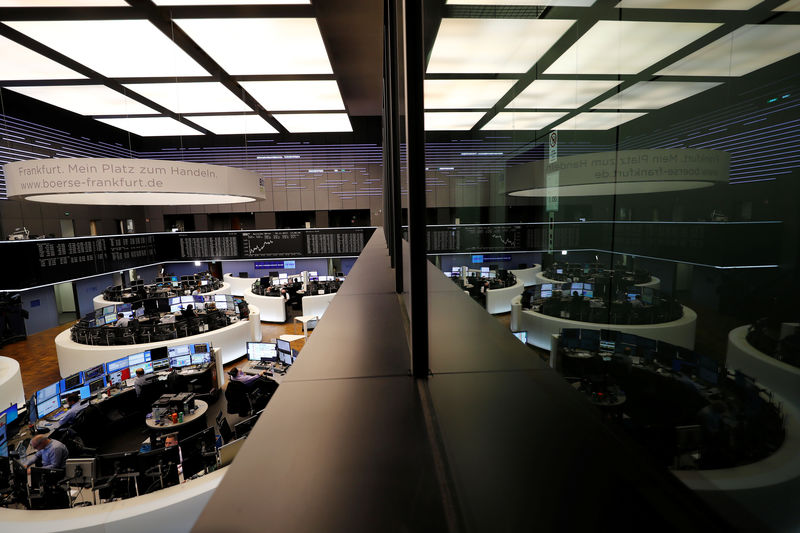By Alasdair Pal
LONDON (Reuters) - World stocks rose on Tuesday, recovering losses after the collapse of German coalition talks -- and Chancellor Angela Merkel's signal that new elections may follow -- had earlier weighed on markets.
The MSCI World index (MIWO00000PUS) was up 0.2 percent at 1230 GMT and similar rises for S&P 500 (ESc1) and Dow Jones (1YMc1) futures indicated U.S. equities were set to open higher.
The pan-European Stoxx 600 (STOXX) index was up 0.5 percent after opening 0.3 percent lower, while the euro was broadly flat after falling 0.52 percent against the dollar on Monday -- its worst day since late October.
"Financial markets did not really react too much," said Paul Donovan, chief economist at UBS Wealth Management, adding that a snap election is not the most likely option because it would be a lengthy process.
Late on Monday, Merkel said she would prefer fresh elections to ruling with a minority government after coalition talks ended between her conservative bloc, the liberal pro-business Free Democrats (FDP) and environmentalist Greens.
But President Frank-Walter Steinmeier urged all parties in parliament "to serve our country" and try to form a government, saying Germany was facing its worst governing crisis in the 68-year history of its post-World War Two democracy.
With Brexit talks also in focus, the euro hit an eight-day low against sterling (EURGBP=), before recovering some losses to trade down 0.2 percent.
LITTLE DELIGHT IN TURKEY
The Turkish lira hit an all-time low of 3.9780 per dollar as investors worried about government pressure on the central bank and tensions with the United States over a gold trader accused of violating sanctions on Iran. It has now lost 17 percent since September.
(Graphic: Turkey's market woes http://reut.rs/2AjIxxf)
The central bank responded with measures to shore up the lira although they had little immediate impact. A central bank official said the weighted average cost of funding
The lira's slide since September has been accompanied by a jump of nearly 200 basis points in short-term government debt yields in the same period, a relatively buoyant time for other emerging markets and global equities. "There is pressure on the lira from rising NATO tension, criticism of the central bank from the president and government, and uncertainty regarding the U.S. court case," said ReelKapital Securities' deputy research manager Enver Erkan.
On a broader basis, the dollar gave back some of its recent gains in Asian trading on Tuesday but stuck close to a one-week high against a basket of currencies as the German political deadlock continued to pressure the euro.
The dollar index, which tracks the greenback against a basket of six major rival currencies, was broadly flat at 94.08 (DXY), but was still within sight of its overnight peak of 94.104, its highest since Nov. 14.
Poor corporate earnings in Europe were also in focus, with British power provider Aggreko (L:AGGK) and manufacturer Melrose (L:MRON) both down as much as 10 percent on worries over profits.
In government bonds, the gap between French and German borrowing costs narrowed on Tuesday to its tightest level since before the euro zone debt crisis of 2010-2012.

Oil prices rose on expectations of an extended OPEC-led production cut, although rising output in the United States capped gains. Brent crude futures (LCOc1) were up 0.4 percent to $62.46.